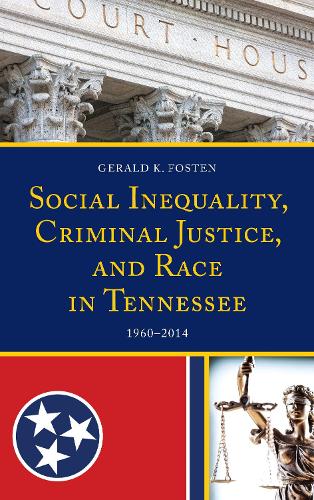
Social Inequality, Criminal Justice, and Race in Tennessee: 19602014
(Hardback)
Publishing Details
Social Inequality, Criminal Justice, and Race in Tennessee: 19602014
By (Author) Gerald K. Fosten
Bloomsbury Publishing PLC
Lexington Books
21st December 2017
United States
Classifications
Professional and Scholarly
Non Fiction
Police and security services
Ethnic groups and multicultural studies
Social and cultural history
Crime and criminology
Ethnic studies / Ethnicity
Social discrimination and social justice
364.089009768
Physical Properties
Hardback
148
Width 159mm, Height 239mm, Spine 18mm
395g
Description
This book examines the national criminal justice systems and the state of Tennessee criminal justice systems policies in terms of how they balance the citizens need for prisons with the private sector's desire for profits and the policies effects on the incarceration rate of African American males in the state of Tennessee. There are important, often neglected, connections among prison sentencing, felony disenfranchisement, voting, and the continuing problematic issues of race in America, particularly in Tennessee. This state serves as a representative case study from which to examine local, state, and national criminal justice systems, disparate outcomes, and social inequality. The book therefore investigates ethically questionable public-private business relationships and arrangements that contribute to socially-constructed economic policy instruments used to fulfill conservatives and white supremacists objectives for white domination in Tennessee. Through mass incarceration and felony disenfranchisement, African Americansin particular, African American maleshave been discriminated against and systematically excluded from political participation, employment, housing, education, and other social programs. This book is grounded on the Racial Contract Theory and Racial Group Threat Theory (Racial Threat Theory or Group Threat Theory). The Racial Contract Theory is used to show how racism itself is an intentionally devised, institutionalized, political arrangement of official and unofficial rule, of official and unofficial policy, socioeconomic benefit, and norms for the preferential distribution of material wealth and opportunities. The Racial Group Threat Theory is employed to demonstrate how growth in the comparative size of a subordinate group increases that groups capacity to use democratic political and economic institutions for its benefit at the expense of the dominant group.
Reviews
Coming on the heels of the Charlottesville white supremacist violence, Social Inequality, Criminal Justice, and Race in Tennessee, 19602014 is timely. Additionally, the theoretical and methodological grounding of the empirical evidence presented in the book is scholarship at its effulgence. -- Abdul Karim Bangura, American University Center for Global Peace
The book is well-researched, with updated and comprehensive bibliography on the subject, and certainly will add to scholarship in the field of race/racism and the U.S. criminal justice system. It is a must read by scholars, policy makers, and concerned political leaders interested in addressing institutional racism and how best to improve the perverted criminal justice that leads to black inequality, political exclusion, and economic disenfranchisement. -- Benjamin Arah, Bowie State University
Author Bio
Gerald K. Fosten is research associate at the African Institution in Washington, DC.
